Recent News
Azu Beastro: Introducing Arugula and Chef Sam CrewWednesday, July 01, 2015
From the fresh local farm produce, to the fresh herbs being grown right on the café’s patio overlooking Harrington Sound, diners at the Azu Beastro are certain to be delighted with the delectable options being created by the restaurant’s new concession holder, Arugula.
The Trunk Island Campaign: Investing in the Future
Wednesday, July 01, 2015
It was once unusual for the formal education of children to occur anywhere besides within the four-walls of the classroom, but today, there is a broader view on how teaching should occur, taking into account the whole child and diverse learning needs.
Creating Innovative Classes to Enhance School Curriculum
Wednesday, July 01, 2015
There has been increasing interest in educational circles in developing interdisciplinary STEM (Science, Technology, Engineering and Math) programmes that not only teach students about scientific method in the classroom, but also how it can be applied in real life experiences.
Curator’s Corner
Wednesday, July 01, 2015
Firstly, we’d like to thank you for your patience over the last several months. The replacement of the Aquarium roof has gone very well and we’re extraordinarily happy with the end product.
Scholarship recipient tracking Longtails
Wednesday, July 01, 2015
BZS/Steinhoff Scholarship recipient Miguel Mejias, a Biology student at Memorial University in St. John’s, Newfoundland, has been undertaking some very interesting and exciting research on White-tailed Tropicbirds (Phaethon lepturus catesbyi), better known to most Bermudians as the “Longtail”.
About
GovernanceAbout Us
Newsletter
Latest News
Gift & Bookstore
Contact
General Inquiries
info@bzs.bm
Latest News
All the latest updates and news from the Bermuda Aquarium, Museum, and Zoo, one of Bermuda's leading visitor attractions!
Excerpt from WILD News April 2018
When new fish arrive at BAMZ, they must first undergo a minimum of 30 days quarantine in order to diagnose any marine parasites which, if left untreated, can infect the other inhabitants of the aquarium hall tanks.
On Thursday, 22nd March, Patrick Talbot, Curator of the Bermuda Aquarium, Museum and Zoo, with the assistance of Marine Collector, Jorge Sanchez, conducted the examination of the quarantined blue parrotfish, queen parrotfish, and rainbow parrotfish before their transfer into the display tanks.
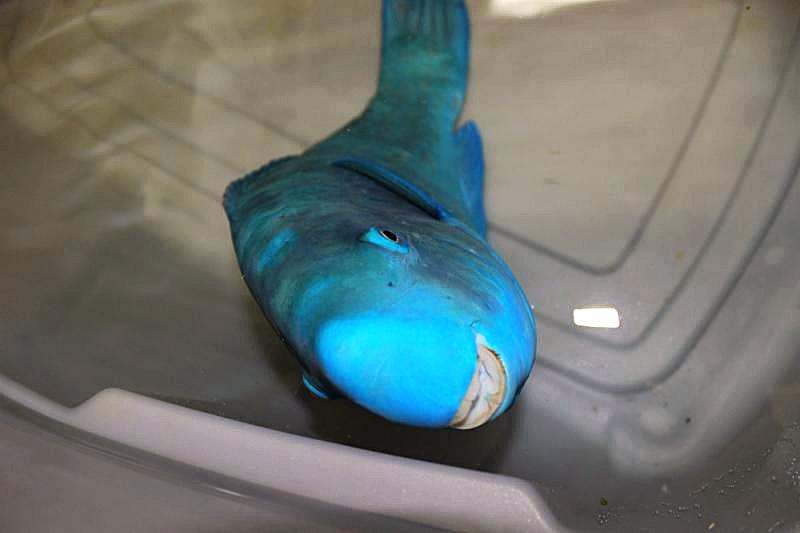
Blue parrotfish going under anesthetic
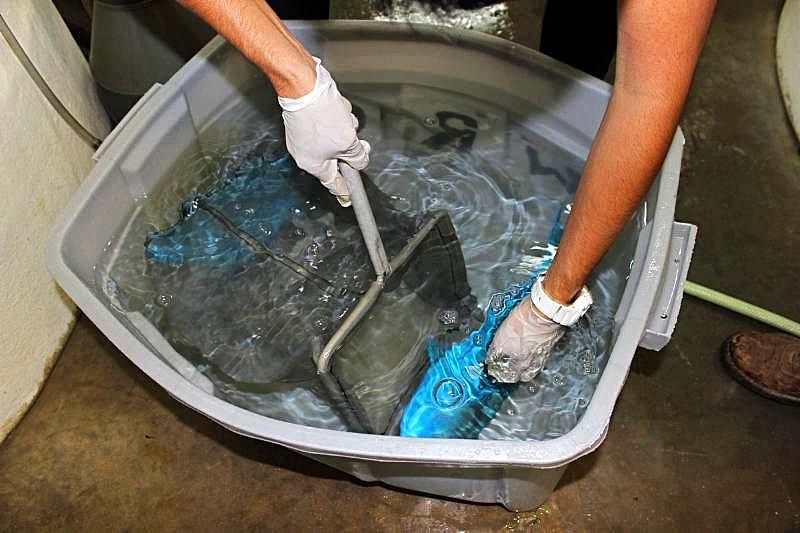
Blue parrotfish being removed from anesthetic
Before each fish was examined, they were first anesthetized in a solution rendering them unconscious and insensible to any pain. The length of time it took for each fish to go to sleep, was also the approximate amount of time it would remain sedated, giving Mr. Talbot an idea of how much time he had to take samples from the fish.
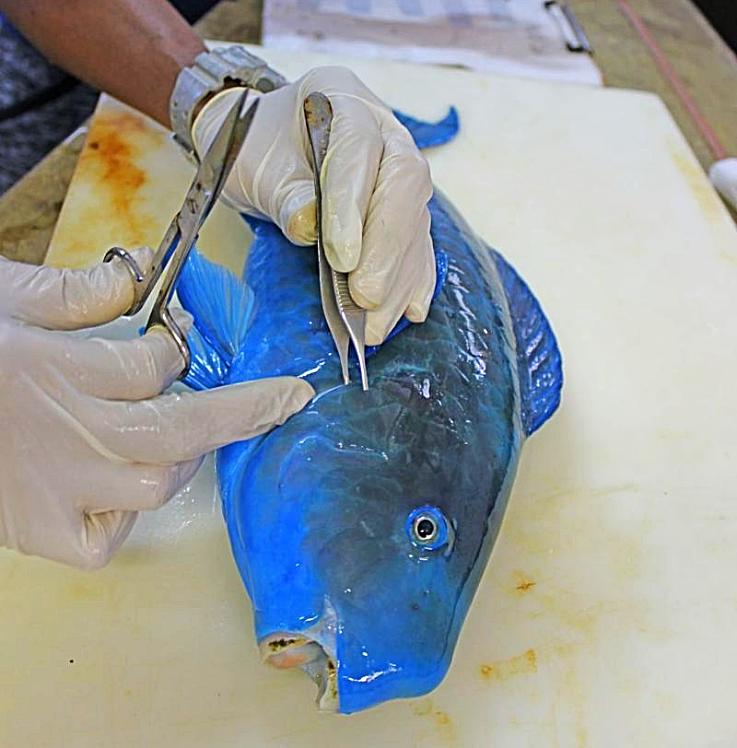
Blue parrotfish having its gills clipped
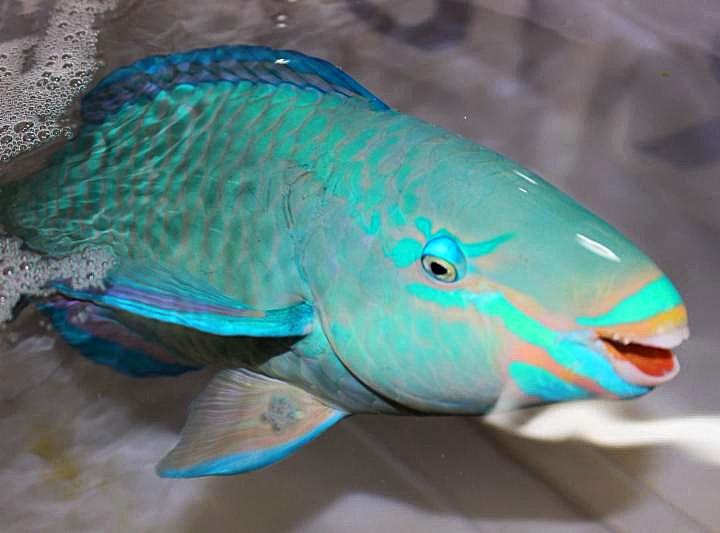
Queen parrotfish going under anesthetic
Each fish went through the same procedure; after sedation, they were removed from the water and placed on a cushion wrapped in plastic. Mr. Talbot quickly took a scale scrape, and a gill clipping - basically taking a sample of the skin mucous covering the scales and a tiny gill biopsy. The fish was then placed in a tub of fresh water, and Mr. Sanchez bubbled oxygen in the water surrounding the gills. The fresh water acted as final medication of sorts, as it would kill most external parasites (should there be any) and the bubbled gas helped ensure the fish had oxygen during its recovery from the anesthetic. After a few minutes, the animal was responsive and returned to a separate tank to await results of the procedure.
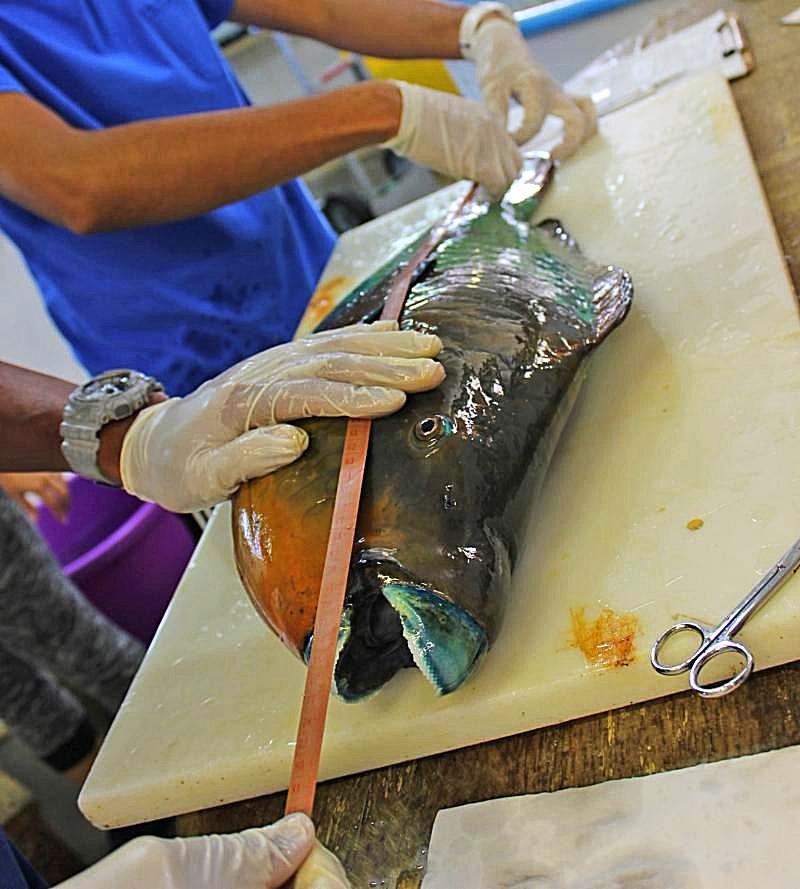
Rainbow parrotfish being measured
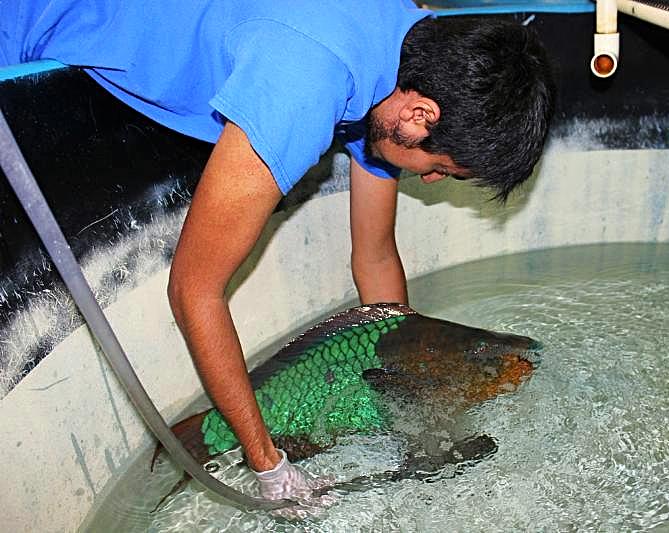
Mr. Sanchez running oxygen over the Rainbow parrotfish gills to aid in its recovery from the anesthetic
Once all the fish were sampled, Mr. Talbot took the scale scrapings and the gill clippings into the laboratory to be examined under a microscope for parasites infections, such as protozoa. If a parasite was found on either sample, the fish would have to go through another two weeks of quarantine and further treatment.
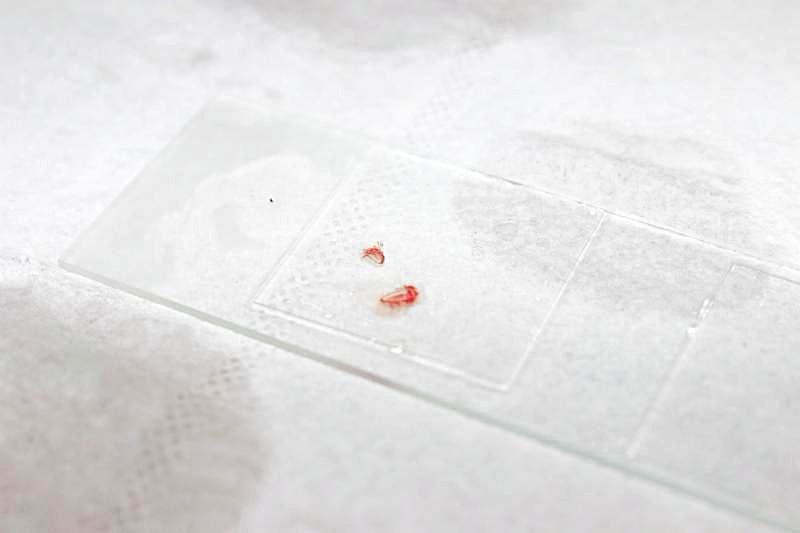
Gill clippings on a slide ready to be examined under a microscope
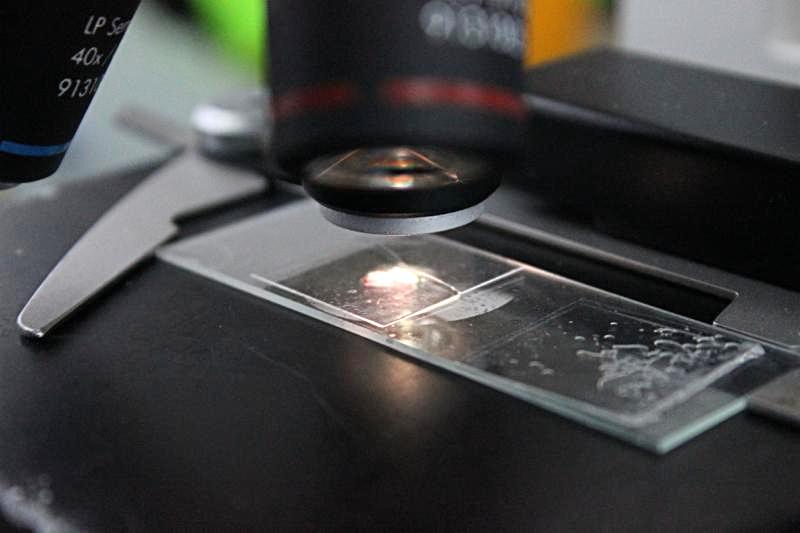
Gill clippings being examined
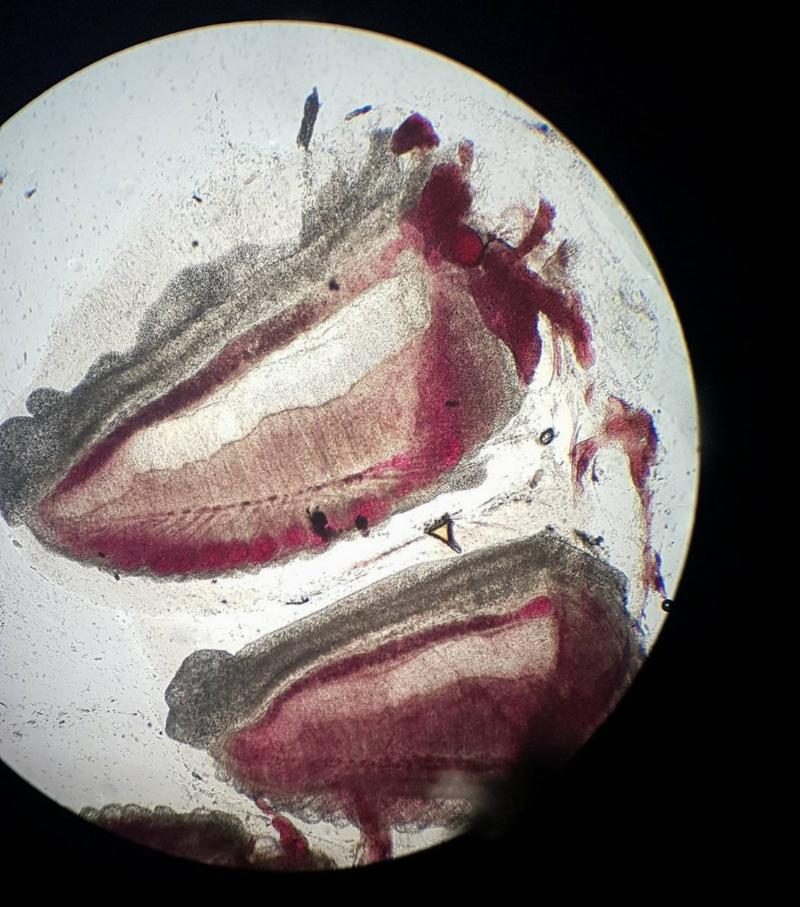
400x magnification of gill clippings
Thankfully, upon completion of the examination, all three fish were parasite free and received a clean bill of health. The queen and blue parrotfish were placed in the parrotfish habitat in the Aquarium Hall, and the rainbow parrotfish was placed in the North Rock habitat.
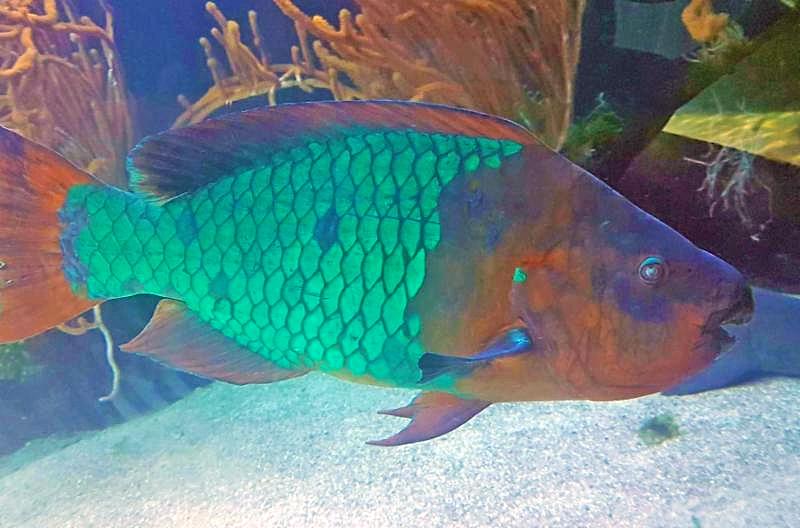
Rainbow parrotfish in the North Rock habitat
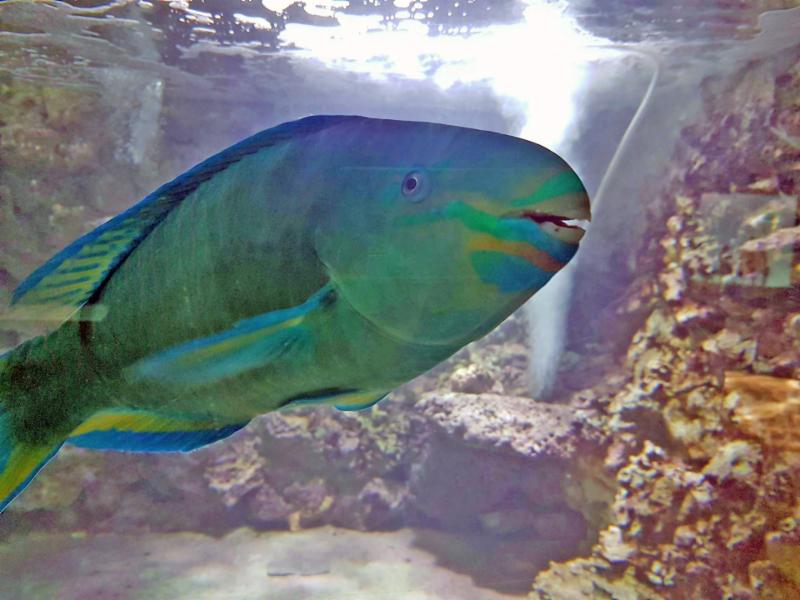
Queen parrotfish in the parrotfish habitat


